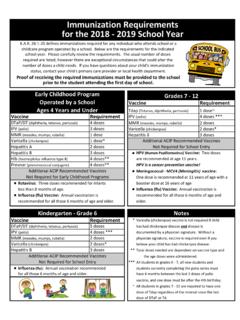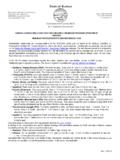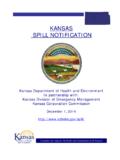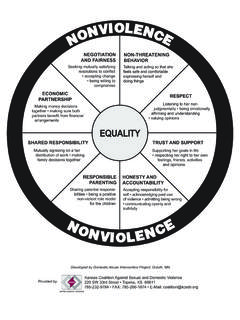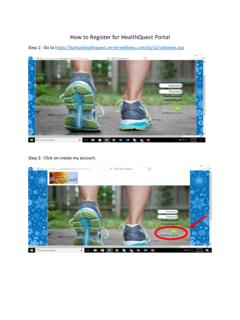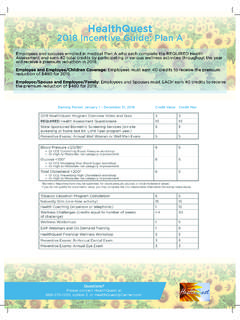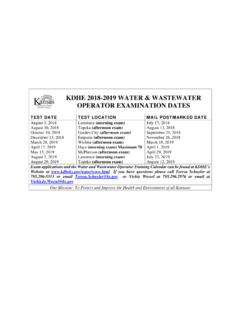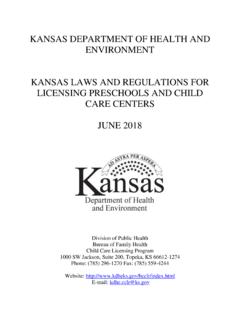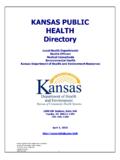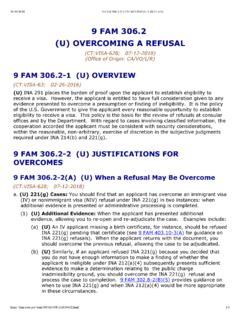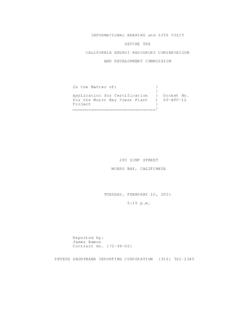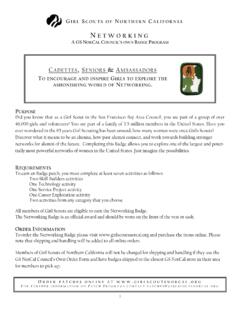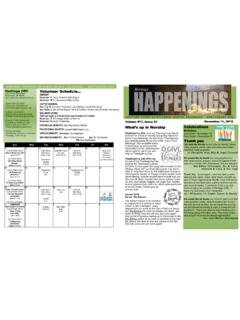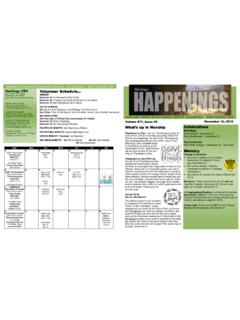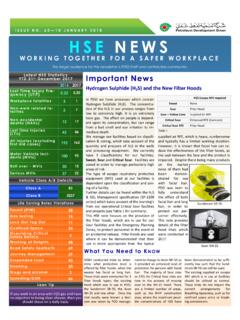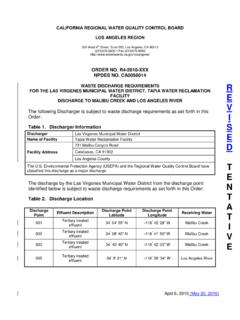Transcription of H u m an P a p illo m a v iru s (H P V ): T w o d ose s re ...
1 KANSAS SCHOOL IMMUNIZATION REQUIREMENT (Kindergarten-12th Grade). 2018-2019 SCHOOL YEAR. Immunization requirements and recommendations for the 2018-2019 school year are based on the Advisory Committee on Immunization Practices (ACIP) recommendations and the consensus of the Governor's Child Health Advisory Committee Immunization Workgroup. The current recommended and minimum interval immunization schedules may be found on the Centers for Disease Control and Prevention Immunization Schedules webpage. The best disease prevention is achieved by adhering to the recommended schedule.
2 However, if a child falls behind, the minimum interval schedule is implemented. To avoid missed opportunities, immunization providers may use a 4 day grace period per age and interval between doses. In such cases, these doses may be counted as valid. 72-5208-5211a - Kansas Statutes Related to School Immunizations Requirements and 28-1-20 defines the immunizations required for school and early childhood program attendance published in June 26, 2008 Kansas Register. Diphtheria, Tetanus, Pertussis (DTaP/Tdap): Five doses required.
3 Doses given at: Dose 1: 2 months, Dose 2: 4 months, Dose 3: 6 months, Dose 4: 15-18 months (4th dose may be given at 12 months provided at least 6 months after dose 3) and Dose 5: prior to kindergarten entry. Four doses are acceptable if dose 4 is given after age 4 years. A single dose of Tdap is required at Grades 7-12 if no previous history of Tdap vaccination regardless of interval since the last Td. Poliomyelitis (IPV/OPV): Four doses required. Dose 1: 2 months, Dose 2: 4 months, Dose 3: 6-18 months, and dose 4 must be given 6 months after 3rd dose, after 4 years of age and prior to Kindergarten entry.
4 Three doses are acceptable with one dose after 4 years of age, 6 months between 2 nd and 3rd dose and final dose prior to Kindergarten entry. Students enrolled in Grade 8-12 with a complete minimum interval Polio series do not need to be recalled for additional doses. Guidance found on the back of the KCI and School Requirements FAQ on the KDHE Immunization Program School Information web page. Measles, Mumps, and Rubella: Two doses required. Dose 1: 12-15 months and Dose 2: prior to Kindergarten entry. Minimum age is 12 months of age and interval between doses may be as short as 28 days.
5 Hepatitis B: Three doses required. Dose 1 given at birth, Dose 2: 2 months, and Dose 3: 6-18 months of age. Varicella (chickenpox): Two doses are required. Dose 1: 12-15 months and Dose 2: prior to Kindergarten entry. Students 12 years old and younger a 3 month interval is recommended however, upon record review the interval between doses may be as short as 28 days for the 2nd dose to be counted as valid. Students 13 years and older, a 28 day interval between doses is required. Please note that regardless of students' age, if first dose is at 12 months of age with 2nd dose 28 days after 1st dose, both doses are valid.
6 No doses are required when student has history of varicella disease documented by a licensed physician. Legal alternatives to school vaccination requirements are found in 72-5209. In addition, to the immunizations required for school entry the following vaccines are recommended to protect students: Meningococcal (MCV4): One dose recommended at 11 years of age with a booster dose at 16 years of age. Human Papillomavirus (HPV): Two doses recommended at 11 years of age. Influenza: Annual vaccination recommended for all ages > 6 months of age.
7 Number of doses is dependent on age and number of doses given in previous years. Vaccination efforts by school and public health officials, immunization providers, and parents are key to the success of protecting our children and communities from vaccine preventable disease. Thank you for your dedication. Rev. 3/29/2018.
